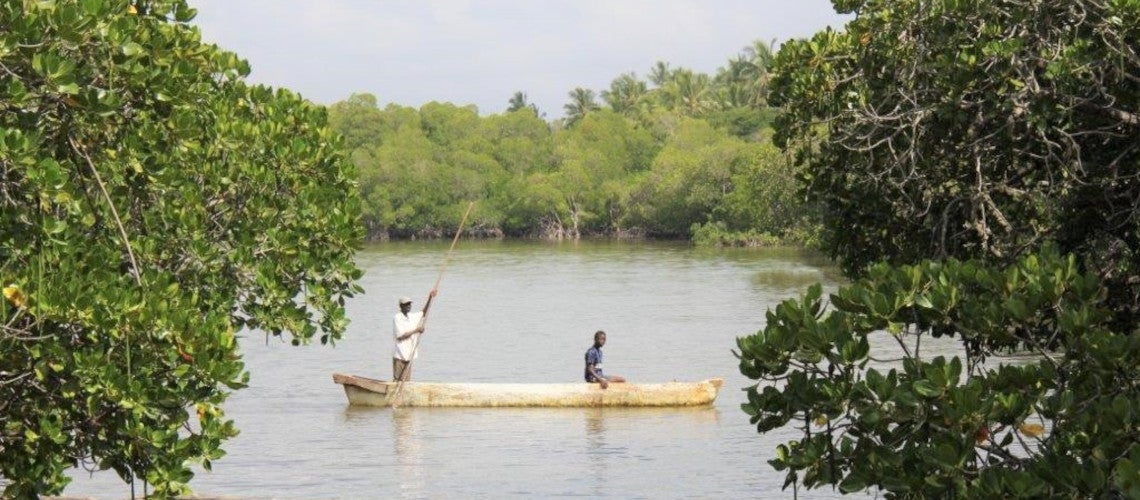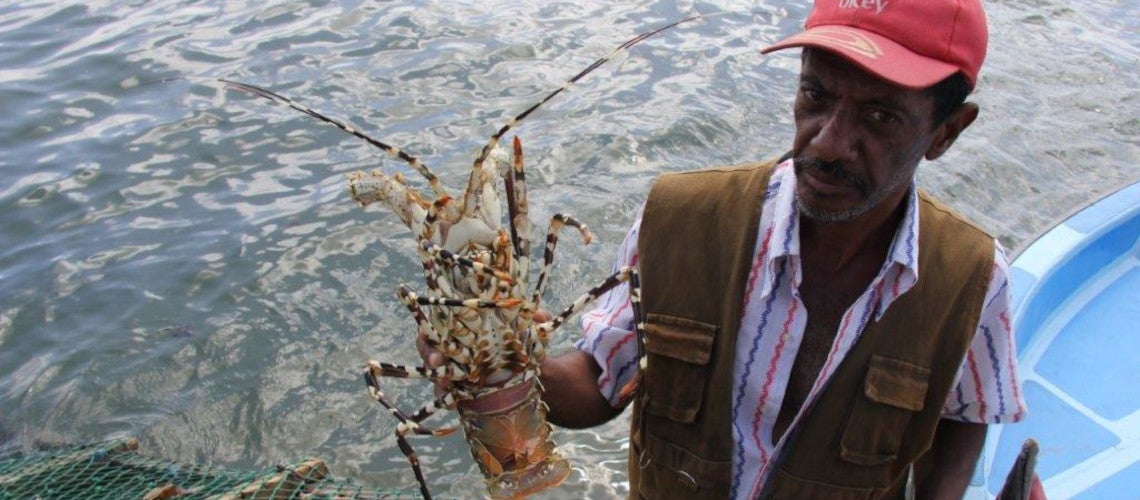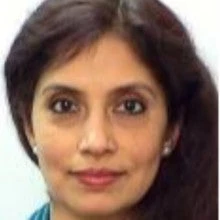 Fishers in Malindi Bay, Kilifi County, Kenya (Michael Carroll/World Bank)
Fishers in Malindi Bay, Kilifi County, Kenya (Michael Carroll/World Bank)
Kenya’s marine and coastal fisheries have a high potential for growth. Addressing Africa’s first Sustainable Blue Economy conference in Nairobi in 2018, President Kenyatta noted that Kenya’s Blue Economy could easily contribute three times its present share of gross domestic product , create jobs and bring prosperity to millions of Kenyans.
The sector already supports an estimated two million people directly and indirectly as fishers, traders, processers, input suppliers, merchants of fishing accessories, and providers of related services. It plays an important role in job creation, income generation, nutrition and food security.
But growth of the sector requires regulations and capacity management, support to critical public infrastructure to enable private sector interest, and most importantly, community participation in the co-management of the resources —all of which would lead to better management of the sector and improved well-being of rural coastal communities.
The government’s focus on the blue economy has placed the fisheries sector prominently on the country’s radar. Recently, the government collaborated with the World Bank to launch the $100 million Marine Fisheries and Socio-Economic Development Project (KEMFSED), to support the building of a sustainable marine fisheries sector and help diversify the income of rural coastal communities.
The project has adopted the principles of shared prosperity, corporate social responsibility and fair-trade value chains. It’s our hope that it will become a trailblazer for future fisheries initiatives in Kenya and elsewhere in the developing world.
Many valuable species are either at vulnerable levels or overfished. The government is committed to responsible and sustainable fishing, and to conserve endangered species and high value fish stocks. Key to this goal is empowering fishers and rural coastal communities to take ownership of the resources, while making sure that they find complementary income sources to counter lost revenues.
In partnership with the government, we designed the KEMFSED Project with an inclusive approach that will support rural coastal communities. This would result in a shift of power, allowing coastal communities to be heard, influencing fishery management and seeking their buy-in, which is needed to put in place the required fisheries policies and legislation. The Project is an integral element of Kenya’s Blue Economy Framework, with goals to strengthen governance and management of fisheries that are vital to coastal livelihoods, secure stocks at sustainable levels of harvesting, and increase the access of coastal households to complementary livelihood activities.
As coastal communities include fishers who are part-time farmers and vice versa, we have developed strategic partnerships with private commercial enterprises with high-value agriculture or mariculture contract farming schemes. Through these, we will support their out-growers of, for example, mud crabs, moringa, African birds eye chili, and tea tree, establish a guaranteed market for their products, and ensure the long-term sustainability of our interventions. With a targeted focus on gender, these enterprises create full-time jobs for women, and them provide with marketing, sales and other critical training.

Complementing this approach, the Project will support common interest groups through a combination of grants, technical assistance, and enterprise and skills training. Small-scale sub-projects with productive or livelihood, environment and social focus will be implemented, along with a scholarship grants for youth. These activities will help coastal households diversify their income, thereby reducing dependence on capture fisheries and increasing their compliance with regulations. The Project will also support advances in mariculture with scientific research, training and support to emerging enterprises.
With the blue economy identified as a priority sector under Kenya’s Vision 2030 development agenda, the Project will support the government in developing a Marine Spatial Plan to help balance demands from users with diverging needs and achieve optimal socioeconomic benefits.
Woven into the design of the KEMFSED Project are the words of President Kenyatta: “The Blue Economy binds us to a common destiny. Oceans are at the heart of our planet.” The Project will go beyond borders and strategically expand the results of the South West Indian Ocean Fisheries Governance and Shared Growth Program (SWIOFish) designed to improve fisheries management and create better livelihoods in SWIO countries. As a member country, Kenya contributes to regional efforts through strengthening governance in its exclusive economic zones, controlling illegal fishing, and strategic planning of national tuna fisheries and related fisheries research.


Join the Conversation